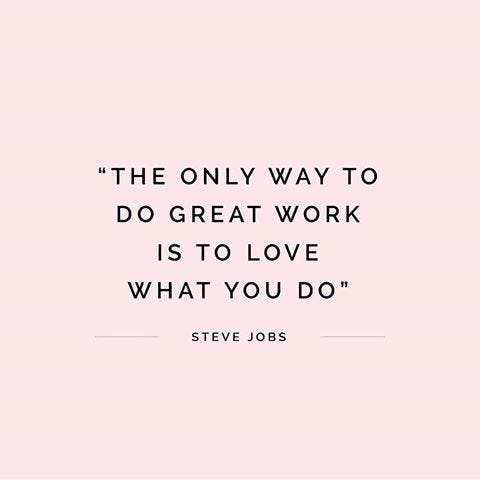
This year, as in many others, I began by writing down my New Year's resolutions. Unlike previous years, I feel less pressure to set rigid goals that demand constant hustling, as I’ve recently earned my master’s degree and secured a full-time job. However, an underlying tension persists—a relentless urge to keep moving forward and advancing my career. I often wrestle with the anxiety of job insecurity these days, a feeling shared by many software engineers today in the face of growing concerns about being replaced by AI. With the rapid rise of generative AI, the need to upskill has become more urgent than ever, particularly for developers like me. However, this relentless push for growth has left me feeling burned out. It’s increasingly difficult to disconnect from work and focus on my personal goals. So, as I set my resolutions this year, I aimed to strike a balance: to pursue projects that help me grow professionally and build new skills, without reducing my life to a robotic routine of ticking tasks off a list.
As discussed in my previous article, the first step to breaking free from a robotic routine was setting the right intention. I decided to prioritize producing higher-quality work focusing on improving the craft of software development which gave me a sense of satisfaction. However, while this sounded straightforward in theory, I found myself unsure of how to consistently stay committed to performing outstanding work. As always, when you actively search for answers, you usually end up finding them. I came across one of the best essays on this topic written by the computer scientist Paul Graham. In his essay titled ‘How To Do Great Work’, he breaks the process down into four steps: choose a field, learn enough to get to the frontier, notice gaps and explore promising ones. Now, choosing the field was easy for me, because at my core, I genuinely love my profession and am driven to improve at it. The next step, then, is to deepen my knowledge and expertise to reach the forefront of my field.
Finding time for focussed learning seems to be a tricky feat to achieve. Time is one resource we all seem to be running short of. While taking online courses may seem like a simple and efficient way to gain quick knowledge, I often question the depth they offer. Additionally, software development is often a field where you learn only actively practising and creating pet projects. It also often requires an online presence. However, the probablity of having an audience for your work is often as scary as it can get. At this stage, pretentiousness may seep in. This is where one of Paul Graham's insights becomes particularly relevant- great work often requires a good deal of boldness. It’s tempting to focus on projects that seem prestigious or relevant, but truly great work requires hard effort and a long-term commitment. The only way to sustain that commitment is by staying authentic to yourself. Additionally, if you fear that your interests seem obvious and unremarkable, remember great insights remain hidden in things others often take for granted. Therefore, it is essential to stop seeking external validation of any sorts. The progress you make in your work and the insights you gain from it are the only things which effectively boost your morale and keep you going.
You might wonder, how is consistently showing up and working hard any different from following a robotic routine? The distinction lies in the intent: you don't create great work simply by hustling; rather, you hustle because you're motivated to produce something exceptional. Interestingly, most productivity advice seems to suggest the opposite. I am yet to find success for the following new year resolution to: wake up at 7 am, work out, have a healthy breakfast, schedule 5 hours of deep work, meal prep, sleep early. Not once have I managed to work for five uninterrupted hours simply because I scheduled it on my calendar, nor have I had a successful workout routine just because my workout clothes were ready. The most consistent and productive person I’ve known is my father. Growing up, I never saw him meticulously plan his days—he didn’t even keep a calendar. What kept him disciplined was his genuine love for his profession. That’s why I wasn’t surprised when Paul Graham pointed out that “you don’t usually need much planning” to do great work. While setting goals can help you focus on promising projects, rigidly adhering to a robotic routine is unlikely to sustain excitement or motivation for long. Yet, in today’s capitalist-driven world, we’re constantly made to believe that success hinges on signing up for the next course or renewing that gym membership. In addition to being swept up in the productivity epidemic, you’re also led to believe that having the perfect self-care ritual is essential. Chances are, somewhere in your New Year’s resolution—alongside hitting the gym and scheduling deep work sessions—you’ve included goals like ‘journal’ and ‘meditate’.
When success continues to be defined by salary and status, college students blind themselves to the effects of productivity. It creates an intrinsic link between our work and the rest of our lives and distorts how we experience the joys in life; talking with family becomes a “study break,” and eating dinner with friends is shortened by the feeling that we need to get back to work. [Emory Wheel]
In my experience, when we become slaves to capitalistic metrics—measuring our self-worth based on salary and status—we end up hustling for the wrong reasons, often leading to feelings of emptiness and disconnection. While I don’t see capitalism as inherently wrong, I do believe that defining your life solely around capitalistic goals is far from ideal. Although my New Year’s resolutions may still echo the familiar theme of “working hard,” I believe the chances of achieving them are far greater when they’re not tied to capitalistic notions of success and failure.





Wow, great points! Yes, sometimes we find ads on as an excuse to procrastinate. Maybe, it will all fall into place when we have the will to do things ♥️